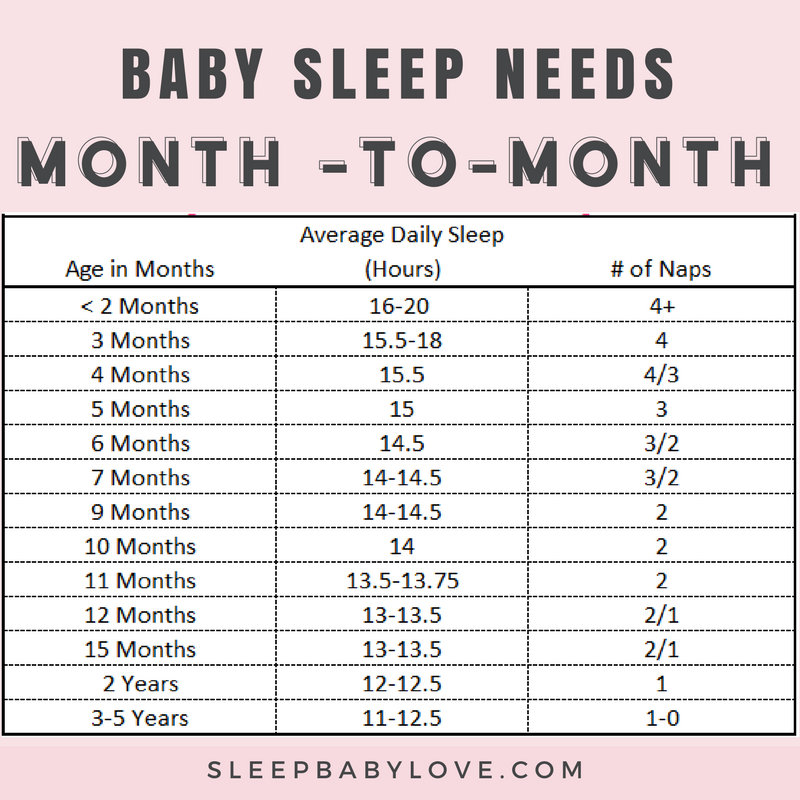The database that I'm applying was designed by another individual and they're applying a conference the place they're explicitly calling LOWER() on string columns for all of the indexes and once they do filtering in a WHERE clause. They are additionally calling a customized operate f_unaccent() which removes accented characters. I switched to applying Dapper for a few of my code and I was ready to add calls to lower(f_unaccent()) the place needed.
If I do not forget correctly, there's a option to outline a DbFunction which will get changed to SQL. I do not do not forget if that was for EF 6 or EF Core off hand. Regarding CITEXT, one factor I do not like about that, is that it seems to not can help you contain a size worth like with VARCHAR?
I like having size values since I use that information in a reverse engineering device that I even have which generates net content for viewing the database. Having the size worth is useful in order that I can know even if to make use of a textual content field or a multi-line textual content field within the UI. Personally, I am hoping that at some point PostgreSQL provides case-insensitive collation assist on the database-level. Ideally, I want to make use of SQL normal knowledge sorts and simply use LIKE quite then ILIKE . Version 12 has some new support, but, I wasn't ready to get it to work, and I suppose it needed to be set on the column-level.
I was questioning if it was solely meant for use for sorting and never comparisons. There's a particular likelihood that I simply did not know what I was doing despite the fact that and did a factor wrong. Ideally, I would really adore it on the database-level, so, that issues work like different databases I work with resembling SQL Server and MySQL. Historically, I even have continuously configured the database as case-insensitive, which is often the default from what I've seen. Admittedly, I guess evaluation operations are slower for case-insensitive.
Personally, from an ease of use perspective, I need each part be case-insensitive by default. I cannot suppose about a case off hand the place a consumer would desire to look a area in a case-sensitive manner. I might see a advantage to some factor like a overseas key value, but, I continually use INTs for main keys. Organizing statistics and processing it in a linguistically significant order is important for correct commercial enterprise processing. Searching and matching statistics in a linguistically significant method is determined by what collation order is applied. For example, looking for all strings better than c and below f produces diverse consequences counting on the worth of NLS_SORT.
In an ASCII binary collation, the search finds any strings that commence with d or e however excludes entries that commence with higher case D or E or accented e with a diacritic, resembling ê. Applying an accent-insensitive binary collation returns all strings that commence with d, D, and accented e, resembling Ê or ê. Applying the identical search with NLS_SORT set to XSPANISH additionally returns strings that commence with ch, considering the fact that ch is handled as a composite character that collates between c and d in conventional Spanish.
This chapter discusses the types of collation that Oracle Database gives and the way they influence string searches by SQL and SQL common expressions. According to the POSIX standard, a variety in a daily expression contains all collation components between the beginning level and the top level of the variety within the linguistic definition of the present locale. The semantics of the variety expression should be unbiased of the character set.
An vital function of the Unicode Collation Algorithm is the systematic mapping of Unicode characters to sequences of collation elements, for the aim of evaluating these strings. The sequence of collation components is then transformed right into a kind key, proper for direct comparison. This part defines the varied varieties of collation aspect mappings mentioned within the specification of the algorithm. The Unicode Collation Algorithm particulars tips on how to match two Unicode strings when remaining conformant to the necessities of the Unicode Standard.
This normal comprises the Default Unicode Collation Element Table , which is files specifying the default collation order for all Unicode characters, and the CLDR root collation aspect desk that's predicated on the DUCET. This desk is designed in order that it could be tailor-made to satisfy the necessities of various languages and customizations. The Default Unicode Collation Element Table is constructed to be in keeping with the Unicode Normalization algorithm, and to respect the Unicode character properties. For example, the combining marks typically have secondary collation elements; however, the Indic combining vowels are given non-zero Level 1 weights, in view that they're as vital in sorting because the consonants. This part delivers definitions for phrases appropriate to that enter matching process. For example, the only approach to type a database established on two fields is to type area by field, sequentially.
The drawback with this strategy is that high-level variations within the second subject are swamped by minute variations within the main field, which leads to surprising ordering for the main names. In the DUCET, the main weights from FFFD to FFFF are reserved for unusual collation elements. For example, in DUCET, U+FFFD maps to a collation component with the fastened main weight of FFFD, thus guaranteeing that it isn't a variable collation element. This signifies that implementations employing U+FFFD as a alternative for ill-formed code unit sequenceswill not have these alternative characters ignored in collation. Ignorable weights are omitted by the principles that assemble type keys from sequences of collation elements. Thus, their presence in collation components doesn't impression the assessment of strings employing the ensuing type keys.
The considered task of ignorable weights in collation components is a vital conception for the UCA. Traditional common expression engines have been designed to deal with solely English text. However, common expression implementations can embody all kinds of languages with qualities which might be very distinct from western European text.
The implementation of normal expressions in Oracle Database is predicated on the Unicode Regular Expression Guidelines. The REGEXP SQL capabilities work with all character units which are supported as database character units and countrywide character sets. Moreover, Oracle Database enhances the matching capabilities of the POSIX common expression constructs to manage the one of a kind linguistic necessities of matching multilingual data. These combining characters want wonderful processing in the time of a comparison. Since \u0301 isonly an accent, its collation factor has a secondary part however no main or tertiary component.
In a evaluation that doesn't contain accents, we need to ignore this factor entirely. If we did not, we'd find yourself evaluating an accent in a single string to a base letter in a further string, which could give invalid results. For example, when doing an accent-insensitive evaluation "a\u0301b" and "ab", we wish to skip the "\u0301" and go on to the subsequent character; in any different case we'd examine "\u0301" and "b". An implementation could enable the utmost degree to be set to a smaller degree than the attainable ranges within the collation factor array. For example, if the utmost degree is about to 2, then degree three and better weights should not appended to the type key.
Thus any variations at ranges three and better might be ignored, successfully ignoring any such variations in willpower of the outcome for the string comparison. Both many-to-many mappings and many-to-one mappings are known as contractions within the dialogue of the Unicode Collation Algorithm, even if many-to-many mappings commonly don't really shorten anything. The recognized unit might then be mapped to any variety of collation elements. On a separate note, it really is on my to do record to attempt to get case-insensitive searches engaged on PostgreSQL. I'm engaged on one different venture that makes use of a PostgreSQL database that has a schema that I haven't any manage over.
As far as I know, there isn't a such thing as a method to configure PostgreSQL on the database-level for case-insensitivity. PostgreSQL 12 has some new assist for case-insensitive collations, but, there aren't predefined collations like MySQL and different databases have. Aa far as I can tell, there isn't a such thing as a method to set it on the database-level, or maybe the desk level. However, as I mentioned, it really is an present database schema that I haven't any manipulate over. The method the database is setup, it has indexes on the columns that use the LOWER() function.
So, the place ever you've got a WHERE with a filter, it's worthwhile to make use of LOWER() for the index to be used. I've been questioning if there's a option to configure the PostgreSQL EF Core issuer to mechanically add those. Luckily, I assume probably I can do it employing the brand new interceptor functionality. Though, again, employing regexes with a textual content exchange is probably not reliable.
I'm stunned that PostgreSQL does not have a approach to configure case-insensitive collation on the database degree like each different DBMS I've labored with does. I do not just like the best approach it desires you to make use of a non-standard SQL facts variety for it. To handle the complexities of language-sensitive sorting, a multilevel comparability algorithm is employed. In evaluating two words, an critical function is the id of the bottom letters—for example, the distinction between anA and a B. Accent variations are sometimes ignored, if the bottom letters differ. Case variations , are sometimes ignored, if the bottom letters or their accents differ.
In some conditions a punctuation character is handled like a base letter. In different situations, it ought to be ignored if there are any base, accent, or case differences. There can even be a final, tie-breaking degree , whereby if there are not any different variations in any respect within the string, the code level order is used. In the past, when MySQL didn't have the a lot considered necessary case delicate collation, some customers flip to make use of binary collation (e.g. utf8_bin) as alternative. Although _bin collation differentiate capital letters and smaller letter for comparison, _bin collations behaves especially in a distinct way from Unicode structured collations. A binary collation compares solely the code level of characters and do not know what the character without a doubt means, when Unicode structured collations examine the weights.
A basic example, we often type 'w' earlier than 'W', however utf8mb4_bin types 'w' after 'W' since the code level of 'w' is 0x77 and the code level of 'W' is 0x57. Is a unit of collation and is the same as one character in most cases. However, the collation sequence in some languages could outline two or extra characters as a collating element.
The historic common expression syntax doesn't enable the consumer to outline ranges involving multicharacter collation elements. For example, there was no technique to outline a variety from a to ch on the grounds that ch was interpreted as two separate characters. Linguistic collation is language-specific and requires extra information processing than binary collation. Using a binary collation for ASCII is correct and speedy since the binary codes for ASCII characters mirror their linguistic order. When information in a number of languages is saved within the database, you might have considered trying purposes to collate the info returned from a SELECT...ORDER BY fact based on diverse collation sequences counting on the language.
You can accomplish this with no sacrificing efficiency through the use of linguistic indexes. Although a linguistic index for a column slows down inserts and updates, it enormously improves the efficiency of linguistic collation with the ORDER BY clause and the WHERE clause. When MAX_STRING_SIZE is about to STANDARD, the utmost size of a collation key's restricted to 2000 bytes. If a full supply string yields a collation key longer than the utmost length, the collation key generated for this string is calculated for a most prefix of the worth for which the calculated end result doesn't exceed 2000 bytes.
For monolingual collation, the prefix is usually one thousand characters. For multilingual collation, the prefix is usually 500 characters. For UCA collations, the prefix is usually 300 characters. The precise size of the prefix might be larger or decrease and is determined by the actual collation and the actual characters contained within the supply string. The implication of this approach to collation key period is that SQL operations employing the collation keys to implement the linguistic conduct will return consequences that will ignore trailing components of lengthy arguments.
For example, two strings commencing with the identical one thousand characters however differing someplace after the one thousandth character will probably be grouped collectively by the GROUP BY clause. In French, sorting strings of characters with diacritics first compares base letters from left to right, however compares characters with diacritics from desirable to left. For example, by default, a personality with a diacritic is positioned after its unmarked variant. They are equal on the first level, and the secondary order is decided by analyzing characters with diacritics from desirable to left. Individual locales can request that the characters with diacritics be sorted with the right-to-left rule. Set the REVERSE_SECONDARY linguistic flag to TRUE to allow reverse secondary sorting.
Primary ignorable characters are ignored when the multilingual collation or UCA collation definition utilized to the given evaluation has the accent-insensitivity modifier _AI, for example, GENERIC_M_AI or UCA0620_DUCET_AI. Primary ignorable characters are comprised of diacritics from varied alphabets however in addition of adorning modifiers, comparable to an enclosing circle or enclosing square. Because non-spacing characters are outlined as ignorable for accent-insensitive sorts, these types can treat, for example, rôle as equal to role, naïve as equal to naive, and as equal to ABC. Regular expression syntaxes are every so often helpful in defining a format or protocol, since they permit customers to specify values which are solely partially identified or which might differ in predictable ways. As seen within the varied sections of this document, there's variation within the alternative techniques in which characters might be encoded in Unicode and this probably interferes with how strings are specified or matched in expressions.
The Web is primarily made up of doc codecs and protocols situated on character data. These codecs or protocols may be seen as a set of assets consisting primarily of textual content info that incorporate some type of structural markup or syntactic content. Processing such syntactic content material material or doc info requires string-based operations comparable to matching , indexing, searching, sorting, and so forth. Regarding case-sensitive searches being sooner then case-insensitive, that isn't a factor that I would give loads of weight to myself.
It's an argument that I even have heard from a wide variety PostgreSQL users. The argument that I even have heard is that PostgreSQL shouldn't assist case-insensitive collations since it's slower and it's best to create all indexes utilizing LOWER() and examine to lowercase. From an ease of use perspective, I do not agree with this. Honestly, given what percentage superior functions PostgreSQL has, I'm amazed that it lacks this functionality. There are a number of different annoyances, like having to cite mixed-case identifiers (I absolutely desire they might repair the idiotic conduct the place it folds issues to lowercase and does not protect case). Code factors that do not have specific mappings within the DUCET are mapped to collation parts with implicit main weights that kind between common specific weights and trailing weights.
Within every set represented by a row of the next table, the code factors are sorted in code level order. The final step is a bit too simple, since the artificial weights need to not collide with different values having lengthy strings of COMMON weights. This is completed through the use of a sequence of artificial weights, absorbing as a lot size into every one as possible. A sequence of characters which in any different case would end in a contraction match might possibly be made to type as separate characters by inserting, someplace inside the sequence, a starter that maps to a totally ignorable collation element. By definition this creates a blocking context, even if the fully ignorable collation factor wouldn't in any different case have an effect on the assigned collation weights.
There are two characters, U+00AD SOFT HYPHEN and U+034F COMBINING GRAPHEME JOINER, which might be notably helpful for this purpose. These might possibly be utilized to separate sequences of characters that may usually be weighted as units, corresponding to Slovak "ch" or Danish "aa". The conference utilized by the Unicode Collation Algorithm is that the mapping for any character which isn't listed explicitly in a given collation factor desk is as an alternative decided by the implicit weight derivation rules. This conference extends to all unassigned code points, in order that each one Unicode strings can have determinant type keys constructed for them. See Section 10, Weight Derivationfor the principles governing the task of implicit weights. Note that quaternary collation components have the identical schematic sample of weights as variable collation components which have been shifted.
Many individuals anticipate the characters of their language to be within the "correct" order within the Unicode code charts. Because collation varies by language and never only by script, it's impossible to rearrange the encoding for characters in order that straightforward binary string comparability produces the specified collation order for all languages. Because multi-level sorting is a requirement, it isn't even available to rearrange the encoding for characters in order that straightforward binary string comparability produces the specified collation order for any exact language. Separate knowledge tables are required for proper sorting order. For extra facts on tailorings for various languages, see .
You can see the complete record of non-spacing characters and punctuation characters in a multilingual collation definition when viewing the definition within the Oracle Locale Builder. Generally, neither punctuation characters nor non-spacing characters are included in monolingual collation definitions. In some monolingual collation definitions, the area character and the tabulator character could also be included. The evaluation algorithm mechanically assigns a minor worth to every undefined character. This makes punctuation characters non-ignorable but, as within the case of multilingual collations, thought of with decrease precedence when identifying the order of in contrast strings.























































